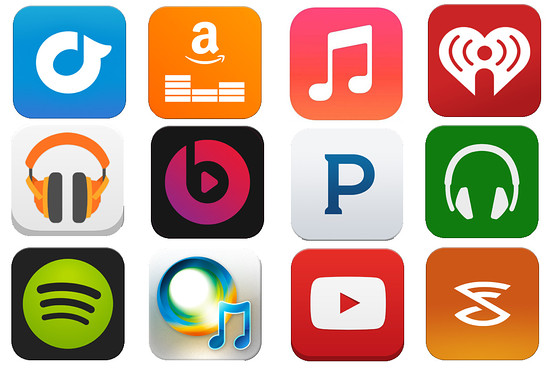According to data from the Recording Industry Association of America (RIAA), streaming music now contributes the majority of the music industry’s overall revenues, which grew 11.4 percent in 2016 to hit $7.7 billion.
Although that’s just half what the music business’s revenues were back in 1999, streaming music made significant jump in terms of market share, moving from a mere 9% in 2011 to 51% in 2016 – a short period of five years.
What is driving that growth?
Spotify immediately comes to mind, as does a plethora of other services that have launched in the last 2-3 years, such as Apple Music, Amazon Prime Music and so on. But the real drivers of growth, interestingly, have been AI-based voice assistants built into purpose-designed hardware. Read that as the Amazon Echo range of devices and, more recently, Google Home.
And with Amazon Alexa, Google Assistant, Apple Siri and Microsoft Cortana soon making their way into automobiles, home appliances, smartphones and more, the time is ripe for the streaming music industry to take the overall music industry to new heights that go beyond 1999’s figures.
According to the British Phonographic Industry, these smart voice assistants are “likely to evolve into our de facto musical concierges around the home and in the car.”
That’s almost a given, considering the fact that you don’t even have to organize your music collection any more. Just ask Alexa or GA and they’ll find the song you want.
What’s more, there’s no longer a need for massive storage devices to keep you songs on. Alexa, GA, Cortana and Siri are already on your smartphone. So, as long as you’re subscribed to a streaming music service like Apple Music, for example, or even Spotify, you can simply ask them to stream whatever song you want to your smartphone.
Moreover, as we mobile networks move into 4.5G (Gigabit LTE) later this year, and eventually 5G over the next few years, there will be even more devices that support thse technologies, and data costs will keep getting cheaper, meaning you can essentially stream as much media as you want without worrying about data caps. That’s still a couple of years away, but it’s an inevitable stage in the evolution of mobile cellular data.

Supporting that argument is the fact that even the volume of downloaded music content is on the decline, and that decline is speeding up alongside the decline in physical retail sales for music albums. But streaming music’s rapid growth is successfully offsetting that decline.
“Estimated retail revenues from recorded music in the United States grew 11.4% in 2016 to $7.7 billion. The primary driver of that growth was a doubling of paid streaming music subscriptions which helped the American music business experience its biggest gain since 1998.”
AI’s contribution to the growing of streaming music can be attributed to Amazon Alexa on Echo devices as a pioneering service, but the proliferation of smart voice assistants that we’ll see in the next few years is going to take it to greater heights than ever before.
That’s good news all around: for artists, for the music industry and for the end user, not to mention the companies that make the devices that host these smart assistants.
Thanks for reading our work! If you enjoyed it or found value, please share it using the social media share buttons on this page. If you have something to tell us, there’s a comments section right below, or you can contact@1redDrop.com us.



